Avoiding Fungus and Correct Watering Methods
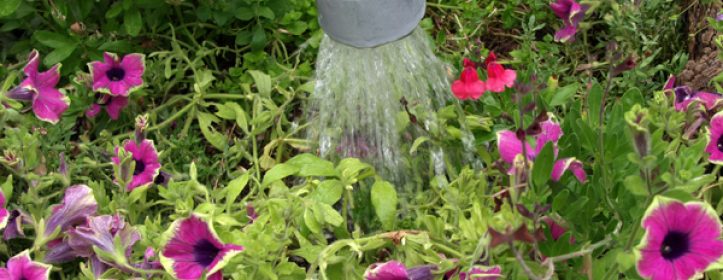
When summer is excessively damp, along come the fungal diseases. Few of us will forget last Year’s outbreak of Late Blight and many of us are familiar with powdery mildew and black spot. Anyone who’s grown phlox, melons, squash or beans has probably seen powdery mildew. A plant under attack from this common fungal disease will exhibit misshapen leaves that seem to be coated with white powder. Black spot, another fungal disease, causes black spots (logically enough) to appear on the leaves followed by a gradual yellowing of the leaf. Black spot is very common on roses. These diseases start out as tiny spores present in the soil or on the stem of the dormant plant. When conditions become right, they incubate and develop into a growing organism. Once these fungal diseases take hold, you’ll have no option but to spray with a fungicide or, in extreme cases, remove the infected plant. Fortunately, there are preventive measures that you can take to keep fungal diseases from taking hold in your garden.
We can get a clue how to avoid fungal diseases by thinking about one that we humans are susceptible to: Athlete’s Foot. We know that if we constantly wear damp, dirty sneakers, we increase the chances that we’ll get a case of Athlete’s Foot. We avoid Athlete’s Foot by drying our shoes between use, and we always (at least I hope you do) put on clean socks before we put our sneakers on. The tactics we use to prevent the spores of Athlete’s Foot from taking hold are quite similar to how we can prevent powdery mildew and other fungal diseases from getting a “toe hold’ in our flower and vegetable gardens.
Good garden hygiene. First, avoid working in your gardens when the plants are wet. When you handle wet plants, you may be spreading the spores of fungal diseases from plant to plant increasing the chances that they will find a plant or location where conditions are favorable. Wait until the plants have dried completely before you handle them. If you are pruning plants that are susceptible to these diseases (like roses), clean the blades of your pruners with chlorine bleach as you move from plant to plant. This will help to prevent the spread of diseases.
Keep your gardens well weeded. Weeds may play host to a disease that won’t affect them but your garden plants may not be so lucky. Weeds are also a good place for insect pest to hide out.
MOST IMPORTANT OF ALL, try not to wet the leaves of your plants when watering. DON”T SPRAY THEM WITH WATER! This spring, our garden has already been subjected to too much damp weather. When you wet the leaves, you’re creating the soggy condition that fungal diseases love (and your plants hate). Give them a break and buy a watering wand so you can soak the soil while wetting the leaves as little as possible. Spraying leaves and flowers is like intentionally putting on damp, dirty socks. I know you’ve all seen those commercials on TV showing folks, who supposedly know better, misting down the flowers. It is picturesque but it’s one of the worst things you can do to your garden plants. Some houseplants benefit from misting in the dry winter home but it is a practice that is best avoided in the outdoor garden. In addition to promoting fungal diseases, spraying your plants with water washes away the pollen. Once this happens, the plant has no use for the flower and aborts it. What this means to you is that, if you make a practice of spraying your plants with water, the flowers won’t last very long and, in the case of vegetables, you won’t get much fruit. Did you really do all that work planting just to sabotage your own effort by spray watering?
When it gets hot, you may need to go soak your head but your plants need to enjoy the dry heat as much as you’ll let them. Besides, plants absorb water through their roots, not the leaves and flowers. Think about it; if you were out in the desert about to die from thirst and someone came along with a nice cold glass of water. What would you want them to do with it? Give it to you to drink or throw it in your face. Stop being mean to your gardens and don’t spray your plants with water. Give them a nice cool drink instead.
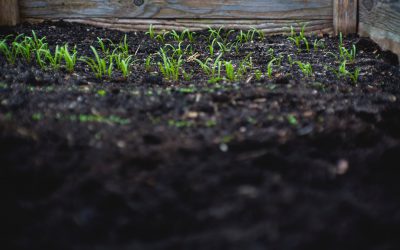
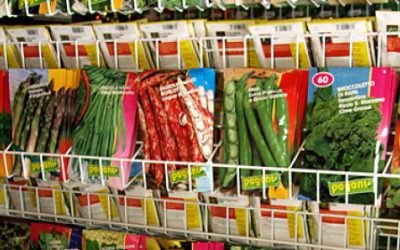
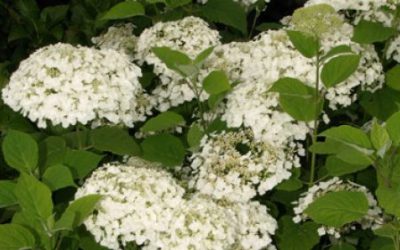
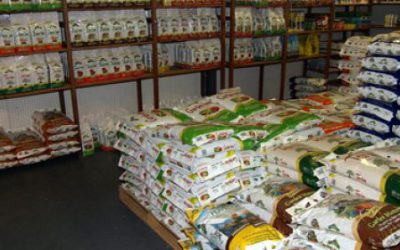
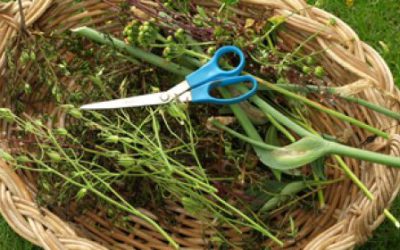

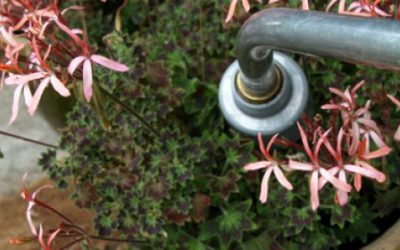
Recent Comments